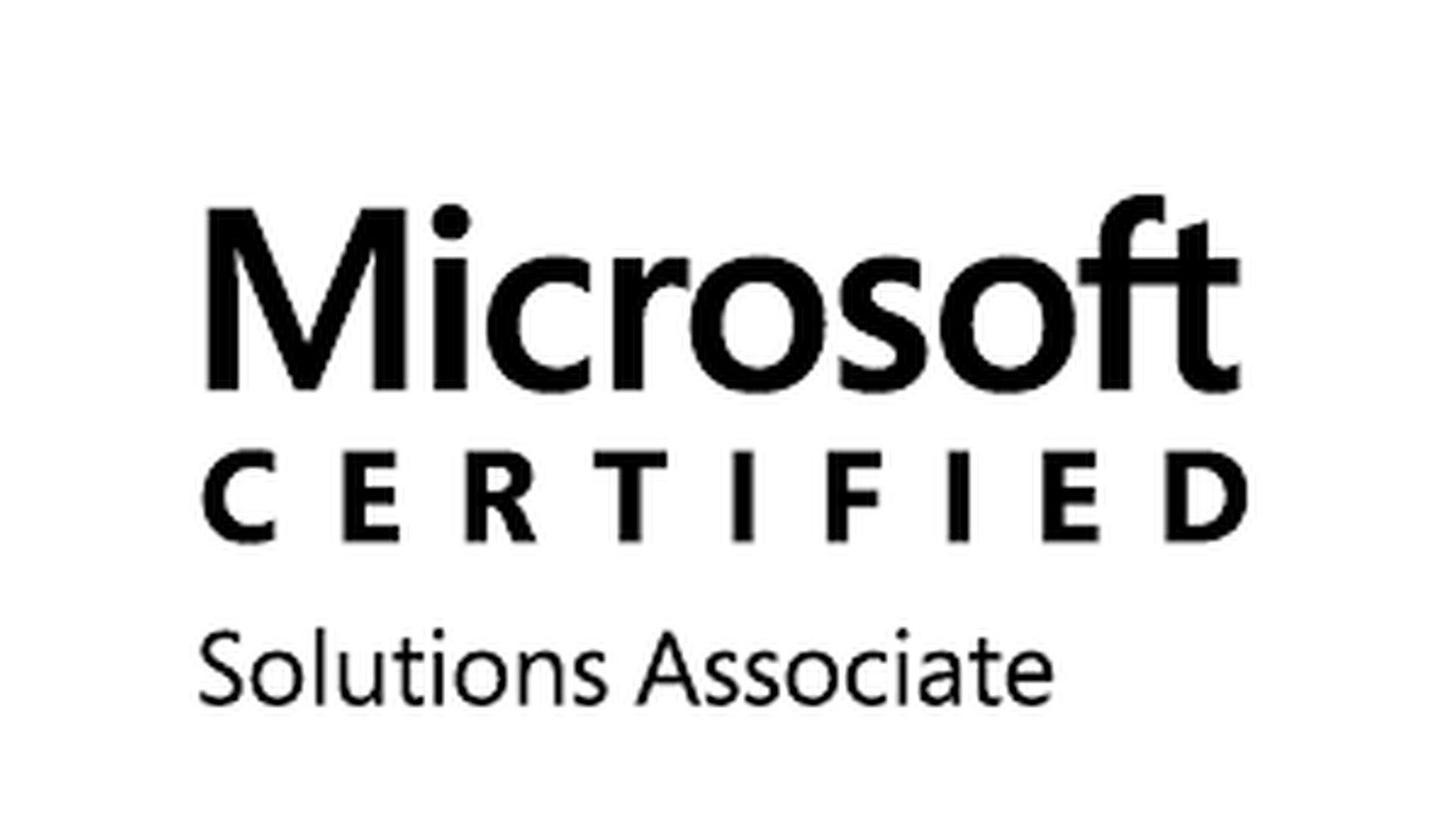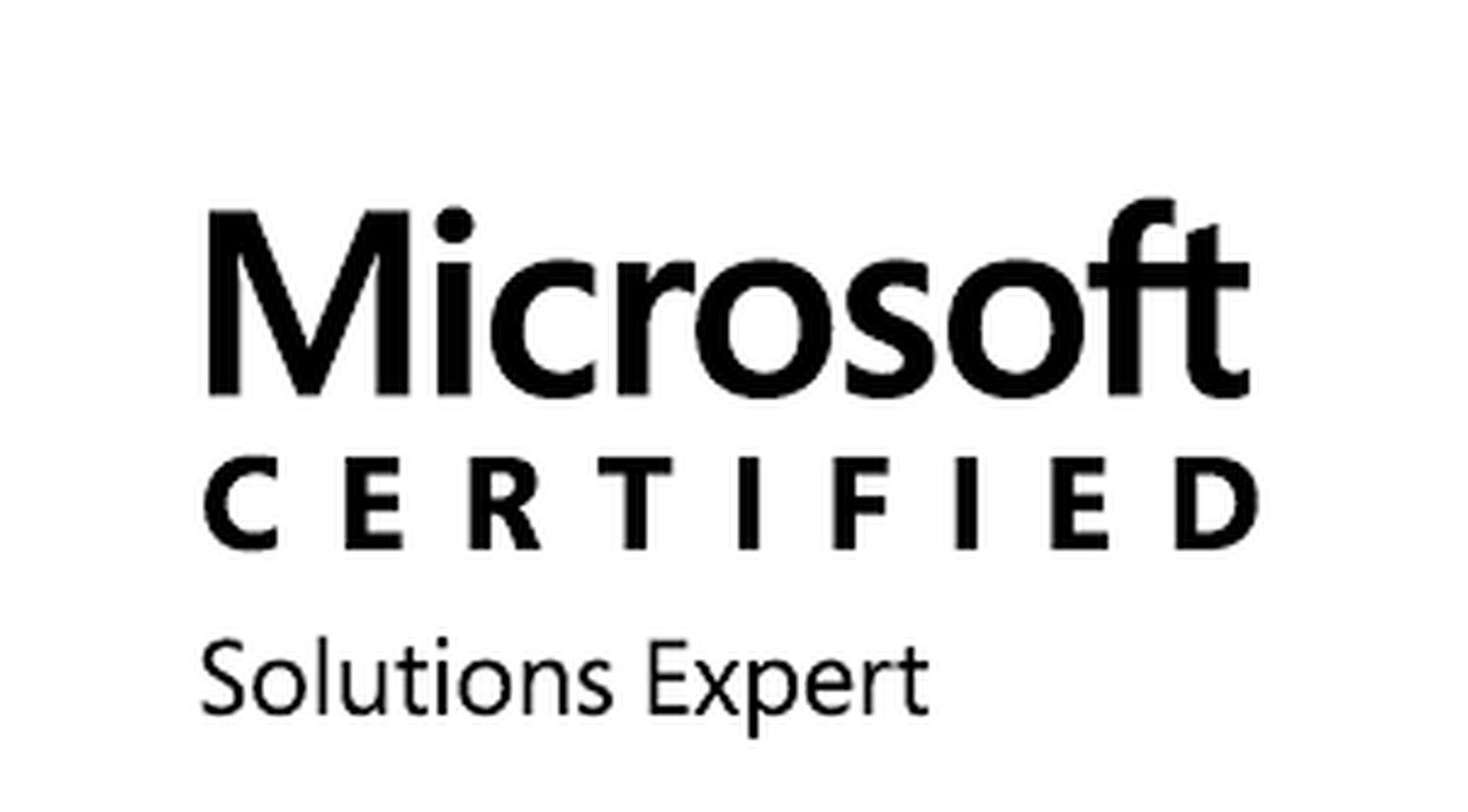Obtaining professional certifications, such as MCSE certification or MCSA certification, has become increasingly vital for individuals seeking to thrive in the competitive world of IT.
These certifications, offered by Microsoft, are recognized globally as benchmarks of expertise in working with Microsoft products and technologies. They demonstrate a level of proficiency that employers and clients alike recognize and respect.
The Microsoft Certified Solutions Associate and Microsoft Certified Solutions Expert certifications cover a wide range of topics related to Microsoft’s technology suite, including Windows operating systems, Azure cloud computing, Office productivity software, Visual Studio programming tools, and SQL Server databases. They provide a comprehensive understanding of Microsoft’s solutions and enable professionals to design, implement, manage, and maintain complex systems and applications using these technologies.
Holding a Microsoft Certified Solutions Associate or Microsoft Certified Solutions Expert certification can significantly enhance career prospects and earning potential. According to various surveys and studies, certified professionals tend to have higher salaries, greater job satisfaction, and better advancement opportunities compared to their non-certified peers.
Additionally, having these certifications demonstrates a commitment to staying up-to-date with the latest developments in the field, which is essential in the fast-paced and constantly changing world of IT.

What is MCSA certification?
MCSA (Microsoft Certified Solutions Associate) certification is a professional credential offered by Microsoft for individuals who work with Microsoft products and technologies. The certification program is designed to validate an individual’s skills and knowledge in implementing, managing, and troubleshooting various Microsoft solutions, including Windows operating systems, SQL Server databases, Azure cloud platforms, and more.
There are several different MCSA certifications available, each of which focuses on a specific area of expertise. Some of the most popular MCSA certifications include:
- MCSA: Windows 10 – This certification covers skills related to deploying, managing, and maintaining Windows 10 operating systems in an enterprise environment
- MCSA: SQL Server 2014 – This certification covers skills related to designing, implementing, and maintaining databases using SQL Server 2014
- MCSA: Azure Infrastructure Solutions – This certification covers skills related to deploying and managing infrastructure solutions using Microsoft Azure
- MCSA: Office 365 – This certification covers skills related to deploying, managing, and securing Office 365 applications and services
- MCSA: Dynamics 365 – This certification covers skills related to implementing and managing Dynamics 365 applications and solutions
MCSA certifications are considered intermediate-level credentials, and they typically require some prior experience working with Microsoft products and technologies. Candidates who pass an MCSA certification exam can pursue higher-level certifications, such as MCSE (Microsoft Certified Solutions Expert) or MCSD (Microsoft Certified Solutions Developer), which demonstrate advanced skills and expertise.

What is MCSE certification?
The Microsoft Certified Solutions Expert (MCSE) certification is a professional credential offered by Microsoft for individuals who work with Microsoft products and technology. It’s a step up from the Microsoft Certified Solutions Associate (MCSA) certification and shows that you have advanced skills and knowledge in implementing, managing, and troubleshooting various Microsoft solutions.
There are several different MCSE certifications available, each focusing on a specific area of expertise. Some popular ones include:
- MCSE: Cloud Platform and Infrastructure – This certification covers skills related to deploying, managing, and securing cloud infrastructure using Microsoft Azure
- MCSE: Data Management and Analytics – This certification covers skills related to designing, implementing, and maintaining data management and analytics solutions using SQL Server and other Microsoft tools
- MCSE: Mobility – This certification covers skills related to deploying, managing, and securing mobile devices and applications using Microsoft Intune and other tools
- MCSE: Productivity – This certification covers skills related to deploying, managing, and securing productivity solutions using Microsoft Office 365 and other tools
- MCSE: Security – This certification covers skills related to implementing and managing security solutions using Microsoft Windows, Azure, and other tools
MCSE certifications are considered advanced-level credentials and require significant prior experience working with Microsoft products and technologies. Passing an MCSE certification exam demonstrates a high level of expertise and can lead to higher-level certifications like MCSD (Microsoft Certified Solutions Developer), which shows expertise in software development and design.

MCSA vs MCSE: The key comparisons
Microsoft Certified Solutions Associate (MCSA) and Microsoft Certified Solutions Expert (MCSE) are professional certifications offered by Microsoft for individuals who work with Microsoft products and technologies. MCSA is considered an entry-level certification, while MCSE is considered an advanced-level certification.
To earn an MCSA certification, candidates must pass one or more exams, depending on the certification track. MCSE certifications require candidates to pass an additional exam beyond the MCSA requirements. The study materials for MCSA certifications typically cover foundational topics and skills, while MCSE study materials delve deeper into advanced concepts and scenarios.
MCSA certifications usually don’t have prerequisites, but some tracks may require prior experience or training. MCSE certifications often require candidates to hold a valid MCSA certification in a related technology area. Both MCSA and MCSE certifications are valid for three years. However, MCSE certifications may be considered more long-term, as they demonstrate a higher level of expertise and commitment to a particular technology area.
CBAP certification opens doors to lucrative career paths in business analysis
The career paths associated with MCSA and MCSE certifications differ. MCSA certifications can lead to roles such as junior system administrator, help desk technician, or database analyst. MCSE certifications can lead to roles such as senior system administrator, IT manager, or cloud solutions architect.
According to various sources, the average salary for someone with an MCSA certification is around $70,000, while the average salary for someone with an MCSE certification is around $110,000. However, salaries can vary widely based on factors like location, experience, and specific job roles.
Some employers may prefer to hire candidates with MCSE certifications, as they demonstrate a higher level of expertise and commitment to a particular technology area. However, other employers may not have a strong preference between MCSA and MCSE certifications, focusing instead on relevant work experience and skills. Both MCSA and MCSE certifications require earning continuing education credits (CECs) to maintain certification status. Microsoft offers various resources and programs to help professionals stay current with the latest technologies and develop their skills.
How to get MCSA and MCSE certifications?
As mentioned before, the Microsoft Certified Solutions Associate (MCSA) and Microsoft Certified Solutions Expert (MCSE) certifications are professional certifications offered by Microsoft for individuals who work with Microsoft products and technologies.
Here’s a step-by-step guide on how to obtain these certifications:
- Choose a certification path: Before you start studying, it’s important to choose a certification path that aligns with your career goals and interests. MCSA and MCSE certifications are available in various tracks, such as Windows Server, SQL Server, Azure, SharePoint, and more
- Meet the prerequisites: Each certification track has its own set of prerequisites, which may include prior experience, training, or other certifications. Make sure you meet the prerequisites for the certification track you’ve chosen
- Study and prepare: Once you’ve chosen your certification track and met the prerequisites, it’s time to study and prepare for the exams. You can use a variety of study materials, including textbooks, online courses, practice exams, and study groups
- Take the exams: When you feel ready, schedule your exams through Prometric or VUE testing centers. You’ll need to pass one or more exams to earn your MCSA certification, and an additional exam to upgrade to MCSE
- Maintain your certification: MCSA and MCSE certifications are valid for three years. To maintain your certification, you’ll need to earn a certain number of continuing education credits (CECs) over the three-year period. CECs can be earned through various activities, such as attending conferences, taking online courses, or completing Microsoft Certified Professional (MCP) programs
- Upgrade to MCSE: Once you’ve earned your MCSA certification, you can upgrade to MCSE by passing an additional exam. This will demonstrate your advanced skills and knowledge in your chosen certification track
After you get the MCSE certification, it is best to keep in mind that technology is constantly evolving, so it’s important to stay current with the latest developments in your field.
That’s a general outline of how to obtain MCSA and MCSE certifications. Remember to choose a certification path that aligns with your career goals, study and prepare thoroughly, and stay current with the latest technologies in your field.

Where can you get MCSA and MCSE certification training?
There are several ways to obtain MCSA (Microsoft Certified Solutions Associate) and MCSE (Microsoft Certified Solutions Expert) certification training.
One option is the Microsoft Learning Partner Program, which offers various training options, including classroom-based courses, online courses, and self-paced learning materials. You can find a local Learning Partner near you by visiting the Microsoft website.
Another option is edX, a popular online learning platform that offers a variety of Microsoft-related courses, including MCSA and MCSE certification training.
Coursera is another well-known online learning platform that provides access to Microsoft-approved courses and certifications.
Udemy also offers a range of MCSA and MCSE certification courses, with video lectures, quizzes, and hands-on exercises.
Pluralsight provides a vast library of courses and tutorials on Microsoft technologies, including MCSA and MCSE certification training.
LinkedIn Learning offers a wide selection of Microsoft-related courses, including MCSA and MCSE certification training. Skillsoft provides a range of MCSA and MCSE certification courses through their ITPro Today portal.
Global Knowledge offers instructor-led, virtual, and e-learning courses for MCSA and MCSE certification. New Horizons provides classroom-based, online, and dedicated private training for MCSA and MCSE certification.
Pearson VUE offers a range of MCSA and MCSE certification training courses and practice exams.
Before choosing a training provider, it’s essential to research their reputation, course content, and success rates to ensure they meet your needs and budget.

There are several opportunities to explore with MCSA and MCSE certifications
Unlocking a world of possibilities, MCSA and MCSE certifications offer a gateway to various career paths in the ever-changing business life. Here are the career paths you may take after you get certified.
Cloud computing
With the increasing adoption of cloud computing, MCSA and MCSE certifications can lead to roles such as cloud solutions architect, cloud administrator, or cloud engineer. Cloud solutions architects design and implement cloud-based solutions that meet the needs of businesses of all sizes. Cloud administrators manage and maintain cloud-based infrastructure and applications. Cloud engineers build and deploy cloud-based solutions.
Data science and analytics
MCSA and MCSE certifications can also lead to roles in data science and analytics, such as data analyst, data scientist, or business intelligence developer. Data analysts collect, clean, and analyze data to extract insights that can help businesses make better decisions. Data scientists develop and apply machine learning algorithms to solve complex data problems. Business intelligence developers build and maintain data warehouses and business intelligence dashboards that help businesses visualize and analyze their data.
Cybersecurity
As cybersecurity threats continue to rise, MCSA and MCSE certifications can lead to roles such as security administrator, security engineer, or incident responder. Security administrators implement and manage security controls to protect networks and systems from cyberattacks. Security engineers design and develop security solutions to protect businesses from emerging threats. Incident responders investigate and respond to cyberattacks.
Artificial intelligence and machine learning
With the growing demand for AI and ML experts, MCSA and MCSE certifications can lead to roles such as AI engineer, machine learning developer, or data scientist. AI engineers design and build AI systems. Machine learning developers develop and train machine learning algorithms. Data scientists use their knowledge of data science and machine learning to solve real-world problems.

DevOps
MCSA and MCSE certifications can also lead to roles in DevOps, such as DevOps engineer, release manager, or automation specialist. DevOps engineers automate the software development and delivery process. Release managers manage the release of new software versions. Automation specialists develop and implement automated tools and processes to improve the efficiency of the software development and delivery process.
Networking
MCSA and MCSE certifications can lead to roles in networking, such as network administrator, network engineer, or network architect. Network administrators manage and maintain networks. Network engineers design and build networks. Network architects design and plan network architectures.
Database administration
MCSA and MCSE certifications can lead to roles in database administration, such as database administrator, database designer, or data architect. Database administrators manage and maintain databases. Database designers design databases. Data architects design and manage database architectures.
Software development
MCSA and MCSE certifications can lead to roles in software development, such as software developer, software engineer, or technical leader. Software developers write code to develop and maintain software applications. Software engineers design and build software applications. Technical leaders lead teams of software developers and engineers.
IT management
MCSA and MCSE certifications can lead to roles in IT management, such as IT project manager, IT operations manager, or IT director. IT project managers manage IT projects. IT operations managers manage the day-to-day operations of IT departments. IT directors oversee all aspects of IT for an organization.
These are just a few examples of the many opportunities available to those with MCSA and MCSE certifications. The key is to identify your interests and strengths and leverage your certification to pursue a role that aligns with your goals and aspirations.
MCSA and MCSE serve as powerful keys to unlocking a diverse array of career opportunities. Whether your passion lies in cloud computing, data science, cybersecurity, artificial intelligence, DevOps, networking, database administration, software development, or IT management, these certifications provide the foundation for a multitude of paths to explore.
Featured image credit: DilokaStudio/Freepik.





